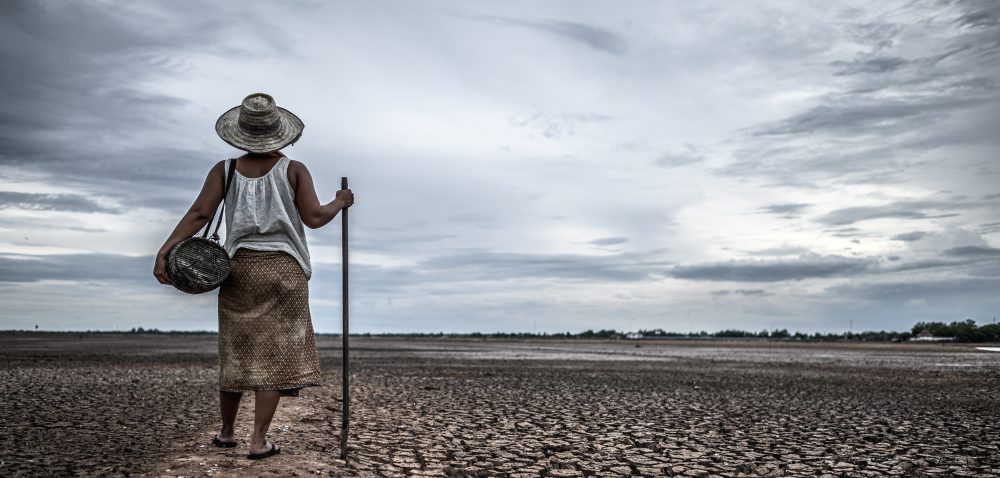
The Research problem
Amidst the prevailing climate crisis, litigation can be a crucial pathway to climate justice for vulnerable people. However, there is a gap in vulnerability-centric analyses and research bringing to the fore ways in which groups such as children, women, those with disabilities, and Indigenous Peoples are acutely susceptible to climate harms (despite typically being least responsible). Facing existential threats, they are co-producing solutions and advancing radical reforms in legal systems to tackle the climate crisis. Moreover, Global South perspectives on climate law and governance, including relating to vulnerability, are often overlooked. Structural and systemic barriers prevent these perspectives from being heard. Vulnerable people in the Global South are often viewed as passive victims of climate change, rather than knowledge-agents, actively pursuing justice, including in the courts. To shift the narrative and amplify these perspectives, we are producing an academically rigorous volume, ‘Climate Litigation and Vulnerabilities: Global South Perspectives’, accepted for publication in Routledge Studies in Law, Rights and Justice. Through an intersectional vulnerability lens, we will reveal and critically analyze legal strategies, barriers, and eventual outcomes of climate litigation pursued in the Global South, especially by women, children, and Indigenous Peoples. We are also collaborating to explore new interdisciplinary methods to disseminate the knowledge, including seeking a major grant.
Research Design
The project entails a partnership among WUN member universities: University of Leeds, University of Southampton, University of Cape Town and University of Pretoria, as well as Columbia University. It is part of a broader project of the Global Network for the Study of Human Rights and the Environment (GNHRE) titled ‘Climate Litigation in the Global South’.
The distinctive volume to be produced through this project, ‘Climate Litigation and Vulnerabilities: Global South Perspectives’, asks whether and to what extent climate litigation addresses under-explored, intersecting forms of marginalization, oppression, and discrimination, especially in the Global South, heightened by climate change. Foregrounding Indigenous narratives, and emphasising unique challenges faced by women and children, we paint a picture of litigation as a response to climate vulnerability hitherto fragmented across disparate studies. The volume seeks to collate often ‘invisibilised’ insights from the Global South, spotlighting vulnerabilities to inform future research, with lessons for and from Nigeria, Bangladesh, India, South Africa, Brazil, Colombia, the Pacific Islands, and beyond.
The co-editors of the volume are Dr Melanie Murcott (Cape Town), Dr Maria Antonia Tigre (Columbia), and Susan Ann Samuel (Leeds). They will also prepare a blog series and an annotated bibliography of sources drawing attention to scholarship on climate litigation and vulnerabilities. With the support of GNHRE volunteers, they collaborate primarily using online platforms. All three are Global South scholars.
There are 20+ primarily Global South contributors to the volume, including several early-career researchers who are supported and mentored during the writing process. Qualitative desktop research to produce the volume entails interdisciplinary synergy. Whilst centered on the law, contributors are engaging with vulnerability theory, climate science, historical and political context, and more. This interdisciplinary approach offers a template for the richness that emerges when varied academic traditions converse.
Dr Dina Lupin (University of Southampton) is Director of the Global Network for the Study of Human Rights and the Environment (GNHRE). She plays a crucial ongoing oversight and strategic leadership role. She will host a soft launch of the volume funded by the WUN, as well as a workshop funded by the WUN at which a major funding proposal will be developed amongst the project’s key collaborators.
The collaboration will be supported by Dr Tafadzwa Mushonga (Pretoria), who leads the Environmental Humanities project of the Centre for the Advancement, as well as Professor Richard Beardsworth (Leeds) and Dr Viktoria Spaiser (Leeds), supervisors of Samuel and prominent experts on the politics of climate change. Mushonga, Beardsworth, and Spaiser will be discussants on the volume at its launch and play a pivotal role at our workshop in the expansion and strengthening of the collaboration, contributing to drafting a major funding proposal, and offering rigorous interdisciplinary engagement
Project Objectives
With WUN funding, in 2024 we hope to complete, publish, and then launch the volume, Climate Litigation and Vulnerabilities: Global South Perspectives, at a hybrid event, hold a workshop to strengthen existing collaborations, and develop and submit a major funding proposal to expand the project. We will publish online a supporting annotated bibliography of sources for further research and a blog series. The major funding, if secured, will be used from 2025 to develop accessible, multi-media law-science- humanities outputs (short films, short stories, poems, images, infographics, etc.) making the volume and other knowledge generated more visible and relevant to activists, communities, policy-makers, and other actors.